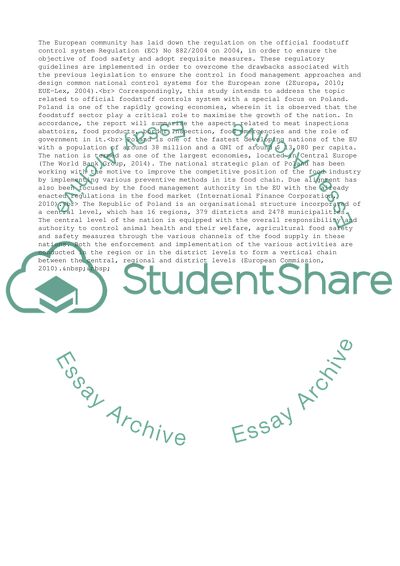Cite this document
(EU Official Control of Foodstuffs Assignment Example | Topics and Well Written Essays - 2750 words, n.d.)
EU Official Control of Foodstuffs Assignment Example | Topics and Well Written Essays - 2750 words. Retrieved from https://studentshare.org/management/1661431-eu-official-control-of-foodstuffs
EU Official Control of Foodstuffs Assignment Example | Topics and Well Written Essays - 2750 words. Retrieved from https://studentshare.org/management/1661431-eu-official-control-of-foodstuffs
(EU Official Control of Foodstuffs Assignment Example | Topics and Well Written Essays - 2750 Words)
EU Official Control of Foodstuffs Assignment Example | Topics and Well Written Essays - 2750 Words. https://studentshare.org/management/1661431-eu-official-control-of-foodstuffs.
EU Official Control of Foodstuffs Assignment Example | Topics and Well Written Essays - 2750 Words. https://studentshare.org/management/1661431-eu-official-control-of-foodstuffs.
“EU Official Control of Foodstuffs Assignment Example | Topics and Well Written Essays - 2750 Words”, n.d. https://studentshare.org/management/1661431-eu-official-control-of-foodstuffs.


